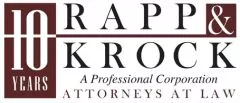Commercial leases in Texas can be difficult to navigate, especially for those business owners who have not yet negotiated one with a landlord. They can vary from standardized forms (such as the forms promulgated by the Texas Association of Realtors) to the complicated, 100+ page documents prepared by the landlord or the landlord's counsel. But regardless of the form of the commercial lease, there are certain provisions that tenants should be aware of which may not be apparent in the lease (or may be purposefully omitted entirely from it).
Common Area Maintenance Expenses
The first provision that prospective tenants need to be aware of is related to Common Area Maintenance Expenses, or CAM charges. These are expenses that the landlord incurs in maintaining the common areas surrounding the leased premises. It is common for landlords to include a laundry list of items that are included in the calculation of CAM charges, but it is also common for landlords to omit the items that should be excluded from the calculation. For example, expenses to repair defects in the construction or maintenance of the common areas should not be passed on to the tenant, and neither should any costs associated with the landlord violating any laws. In addition, all CAM charges should be subject to reasonable and necessary qualifiers to ensure items not listed in the commercial lease are still only included if they are both reasonable and necessary expenses. There are always going to be some negotiating points for what should or shouldn't be included in the CAM charges (such as capital improvements to the building of the leased premises), but there is usually a middle ground that can be achieved (such as including only those capital improvements that will result in a reduction of CAM charges).
Audit Rights
Related to CAM charges are a tenant's audit rights with respect to what the landlord has claimed as proper CAM charges in a given year. Many commercial leases omit audit rights as a provision the tenant can exercise, which means the tenant is stuck with whatever charges the landlord claims to be included as CAM. But including an audit provision of CAM charges allows the tenant the peace of mind that the tenant can, at the tenant's option, review the books and records of the landlord to confirm that all CAM charges are proper under the lease. Such a provision can also provide for punitive measures should the landlord improperly include items that shouldn't be CAM charges, such as the landlord paying for the tenant's inspection (including attorney's and accountant's fees) and overpayments of CAM charges by the tenant being credited to future rent obligations. While an audit right may never be exercised, its inclusion in a lease may be enough to deter a landlord from attempting to include any improper expenses as CAM charges.
Disruption in Utilities
Most tenants cannot operate without the consistent and uninterrupted flow of utilities to the leased premises. However, many commercial leases provide that the landlord cannot be held responsible for any interruption in utilities, which places the full burden of any interruption on the tenant. Not only are landlords typically better situated to absorb these sorts of costs, but it should be the landlord's responsibility to ensure its leased premises consistently have utilities delivered, regardless of the cause of any interruption. There is always room to negotiate, whether it be utilities have to go a certain number of consecutive days before rent can be abated, providing for base rent abatement but not additional rent abatement, or excluding the landlord's liability in the event of natural disasters. But the full burden of interruptions in utilities should not be exclusively borne by the tenant.
Landlord Accessing the Leased Premises
Another issue that can be hidden in a commercial lease is the landlord's access to the leased premises. Many commercial leases provide that the landlord may enter the leased premises to conduct repairs, do inspections, show the space to prospective tenants, and other related reasons. But many landlords neglect to include qualifiers on their access, which means the landlord has an unfettered right to enter and disrupt the tenant's business (such as the landlord could say they need to repair the plumbing and shut down the tenant's business for X days). However, there are many qualifiers to the landlord's right to access the leased premises that can be used to help the tenant in these situations, including requiring prior written notice before a landlord can enter the premises and limiting access so as to not unreasonably interfere with the tenant's business with the agreement that the parties will work in good faith to find a workable solution in the event the tenant believes the business is being interrupted (such as having the landlord access the leased premises only on the weekends or at night).
Exit-Planning
As far as exit-planning strategies are concerned, the main provision to focus on is the assignment section. Many commercial leases keep it simple in favor of the landlord: the tenant cannot assign or sublet without the landlord's consent. But enhancing this section to include specific situations where the tenant can assign without landlord consent can set the tenant up in a good position for any potential future exits, such as allowing an assignment to affiliates controlled by the tenant, assignments to family members, assignments if the tenant sells its assets or equity, and assignments to individuals with equal or greater net worth. Net worth qualifiers could even be used for all permitted assignments to make the landlord feel more comfortable about any potential assignment without their consent. However, in the event the landlord cannot accept carve-outs to its consent, one effective negotiation point is to include that the landlord's consent cannot be "unreasonably withheld, conditioned, or delayed", which still requires the landlord to consent but grants the tenant some protections in gaining such consent.
Liability After Assignment
One sticking point with respect to assignments that regularly gets overlooked is the tenant's liability to the landlord post-assignment. It's common for landlords to include provisions where a tenant who assigns a lease remains primarily liable under the lease after an assignment in order to more fully secure the landlord from any potential default from the new tenant. But given that the previous tenant has no authority or control over the actions of the new tenant, and given that the landlord was previously secured with only one tenant obligated under the lease prior to the assignment, this is something that should be removed entirely from a commercial lease, especially if the new tenant has a net worth greater than or equal to the previous tenant.
Landlord Defaults
Lastly, landlords typically include a very thorough section on what constitutes a tenant default, as well as lengthy language laying out all the remedies a landlord has against the tenant after a tenant default. However, many commercial leases omit any language with respect to events that constitute a landlord default, or remedies a tenant has available in the event a landlord defaults. We regularly include these types of protections for tenants in order to make the lease more even-handed and require the landlord put more skin in the game, otherwise, a tenant's remedy upon a landlord defaulting on a lease is slim to none. Including certain remedies after a landlord default, such as rent abatement, termination options, or even the ability to file a lawsuit, are the protections a tenant needs in order to ensure the landlord holds up their end of the bargain with respect to the commercial lease.
A commercial lease delivered by a landlord that doesn't include the above protections for the tenant doesn't necessarily mean that the landlord is a bad actor; it usually means that the landlord is trying to get the best deal possible. These types of practices by landlords, and how common it is to omit these tenant protections in commercial leases, are reasons why tenants need to be aware of these issues and understand that there is always room to negotiate to make a commercial lease more protective to a prospective tenant.
The content of this article is intended to provide a general guide to the subject matter. Specialist advice should be sought about your specific circumstances.


